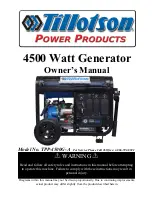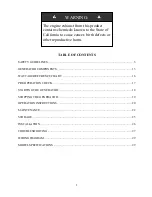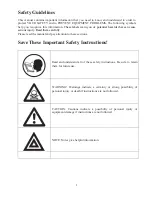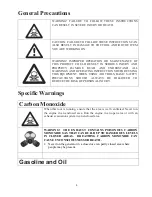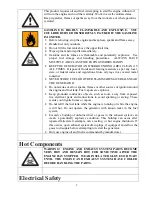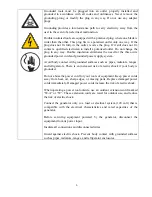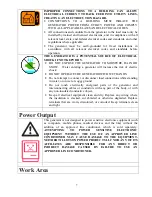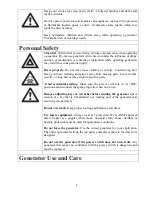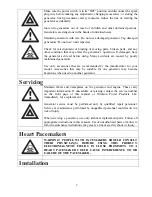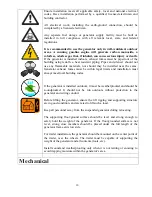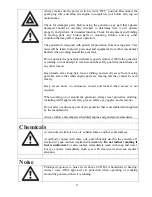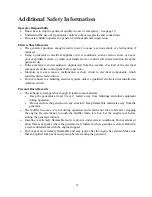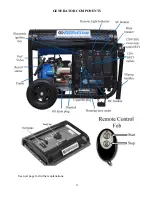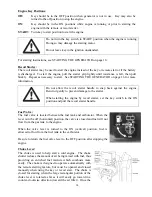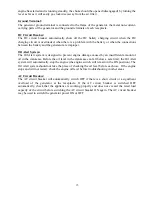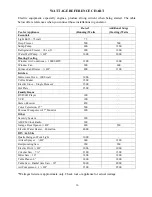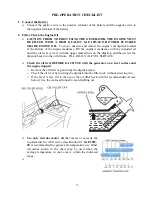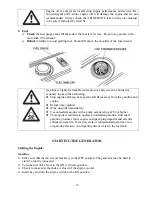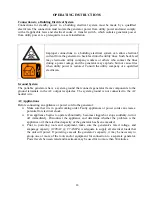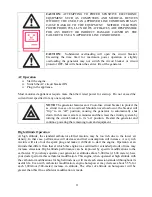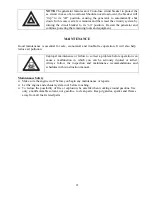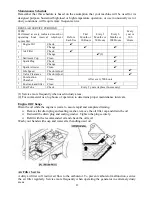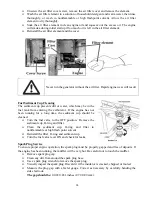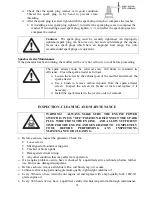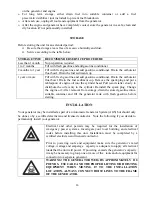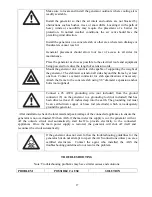
12
Additional Safety Information
Operator Responsibility
!
Know how to stop the generator quickly in case of emergency. See page 19.
!
Understand the use of all generator controls, output receptacles and connections.
!
Do not let children operate the generator without parental supervision.
Electric Shock Hazards
!
The generator produces enough electric power to cause a serious shock or electrocution if
misused.
!
Using a generator or electrical appliance in wet conditions, such as rain or snow, or near a
pool or sprinkler system, or when your hands are wet, could result in electrocution. Keep the
generator dry.
!
If the generator is stored outdoors, unprotected from the weather, check all of the electrical
components on the control panel before each use.
!
Moisture or ice can cause a malfunction or short circuit in electrical components, which
could result in electrocution.
!
Do not connect to a building electrical system unless a qualified electrician has installed an
isolation switch.
Fire and Burn Hazards
!
The exhaust system gets hot enough to ignite some materials.
•
Keep the generator at least 3 feet (1 meter) away from buildings and other equipment
during operation.
•
Do not enclose the generator in any structure. Keep flammable materials away from the
generator.
!
The muffler becomes very hot during operation and remains hot for a while after stopping
the engine. Be careful not to touch the muffler while it is hot. Let the engine cool before
storing the generator indoors.
!
Gasoline is extremely flammable and is explosive under certain conditions. Do not smoke or
allow flames or sparks where the generator is refueled or where gasoline is stored. Refuel in
a well-ventilated area with the engine stopped.
!
Fuel vapors are extremely flammable and may ignite after the engine has started. Make sure
that any spilled fuel has been wiped up before starting the generator.
Summary of Contents for TPP-4500G-A
Page 13: ...13 GENERATOR COMPONENTS See next page for further explanations...
Page 29: ...29...

